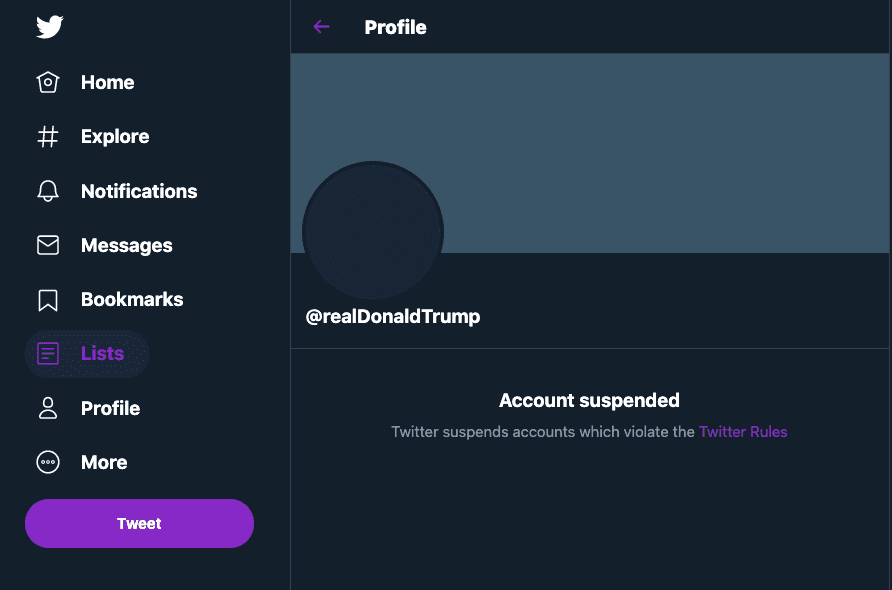
The Politics of Social Media
Ever since big tech companies Twitter and Facebook took the initiative to ban President Donald Trump, the power that these social media platforms hold and their political influence has been more scrutinized than ever before.
There is no question that Twitter and other social media platforms have become a prominent source of information (and misinformation) over the past decade, easily influencing the opinions of an extremely wide audience with just 280 characters per post. And many politicians have been able to take advantage of this for their own good. In 2017, Trump told Fox News in an interview with Maria Bartimoro that he attributed much of his victory on the influence of social media, “I doubt I would be here if it weren’t for social media, to be honest with you.”
And that would not be just Trump. Other far-right politicians, such as Brazil’s president Jair Bolsonaro, can attribute much of their success due to their use of social media. In 2018, Bolsonaro’s campaign made use of WhatsApp, a Facebook-owned messaging platform, to launch an extensive misinformation campaign bashing his left-party opponent.
Earlier this month, Twitter released a statement announcing the suspension of @realDonaldTrump due to concerns that Trump’s tweets could further incite more violence and disrupt the peaceful transition of power on January 20th, stating “our determination is that the two Tweets above are likely to inspire others to replicate the violent acts that took place on January 6, 2021, and that there are multiple indicators that they are being received and understood as encouragement to do so.”
The announcement did not come as a surprise, as Twitter had already temporarily banned his account a day prior and Facebook had by then released a statement banning Trump for at least the two weeks that there were left before the transition of power to President-elect Joe Biden. However, it did raise several questions regarding Twitter’s rights to censor users and the role of media platforms in the current political climate.
And rightfully so. For a long time, Twitter and big social media platforms have claimed to be the epitome of free speech, absolving themselves from being responsible for the information its users should decide to exchange. But if such information is able to influence the way millions of people vote, are these companies really to be completely absolved from the type of misinformation that can be easily spread? Over the past few years, we have seen these companies taking more and more responsibility for the content being released on their platforms, implementing fact-checking tools, and taking down certain posts that could incite violence.
Whenever Trump would tweet about election fraud being the reason for Biden’s victory, Twitter would flag the content of the tweet and give a warning that “the content shared in this Tweet is disputed and might be misleading about an election or other civic process.” But still, millions of people believed Trump’s election fraud claims and on January 6th a mob angered by the result of the election, convinced that it had been a robbed election, walked down the streets of Washington DC and broke down the doors of the Capitol.
So shutting down Trump’s Twitter following the riot might be considered far too late for those who argue that Twitter and Facebook are responsible for the consequences of the information released on their platforms. On the other hand, others still believe that taking down information and shutting down accounts is a violation of freedom of speech.
And while it is alarming the amount of control that just a few companies hold over the release of information to the public, and that just within a couple of days they could easily shut down all of Trump’s accounts, one thing is particularly clear: the First Amendment of the Constitution does not protect people’s freedoms when it comes to releasing information on privately owned social media platforms. This might be precisely the problem, all of these companies have been allowed to somewhat self-regulate and slowly change their policies on their own. Have these social media companies been allowed too much independence?
First Amendment expert David L. Hudson argues that “When a private actor has control over online communications and online forums, these private actors are analogous to a governmental actor,” and that therefore “the [Supreme] Court should interpret the First Amendment to limit the ‘unreasonably restrictive and oppressive conduct’ by certain powerful, private entities—such as social media entities—that flagrantly censor freedom of expression.”
Whether or not this is true, it can be expected that sooner than later the government’s responsibility when it comes to regulating these platforms will have to be further considered. Both the liberty of companies to absolve themselves from information released by their users, and their liberty to decide what type of information should be censored might soon come to an end.


